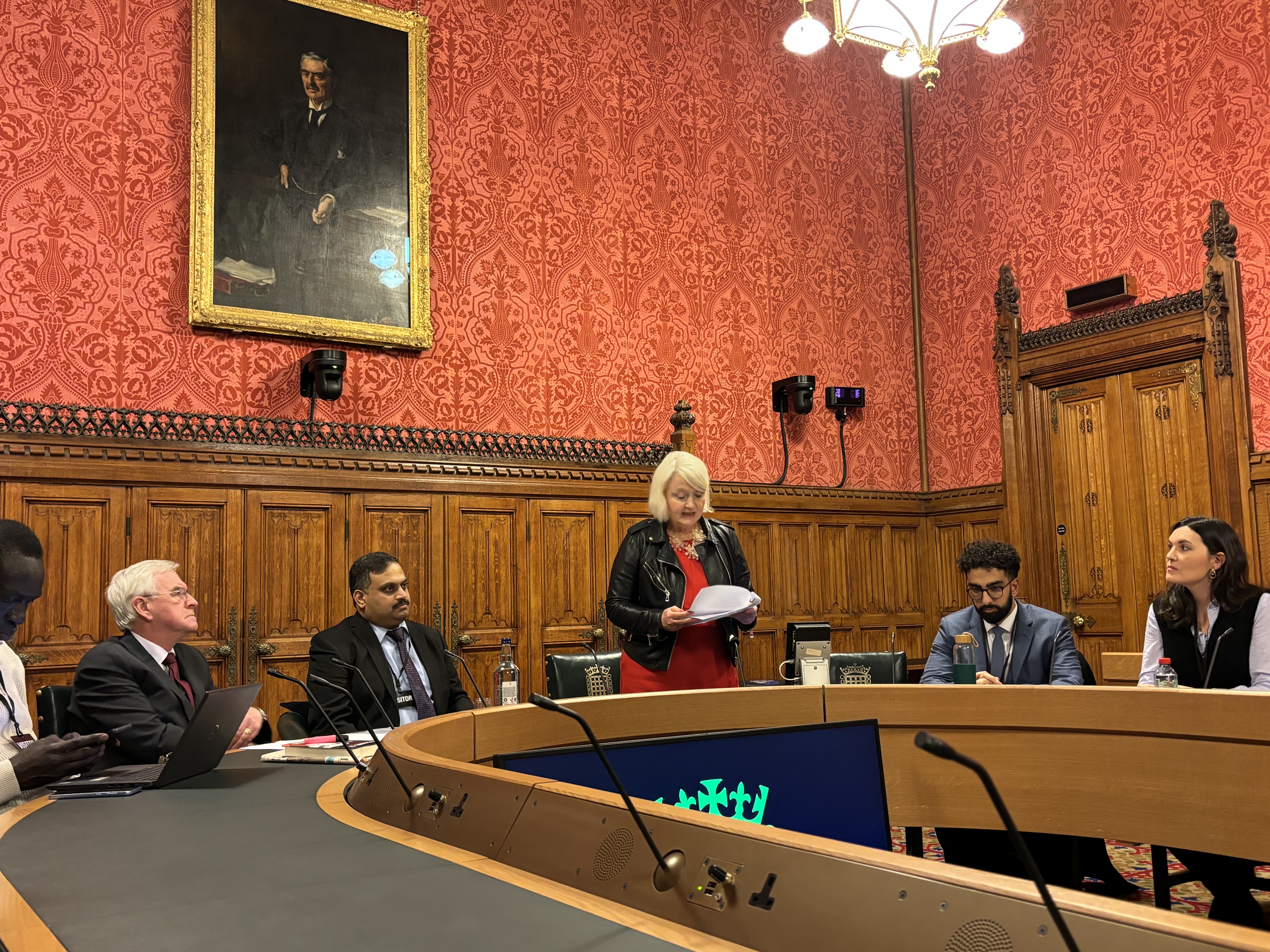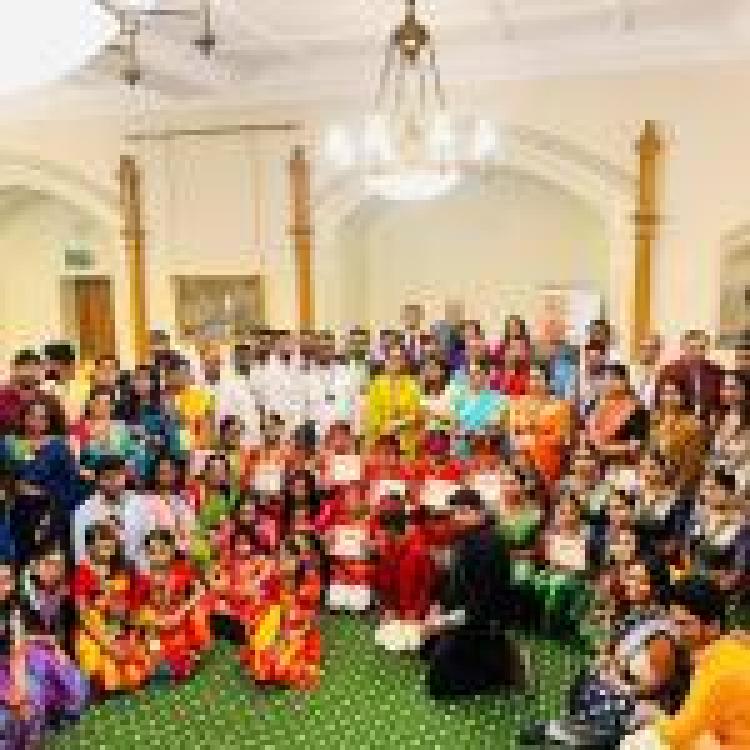
UK Parliamentarians urged the Sri Lankan state to decriminalise the Tamils' right to self-determination at an event last week at Westminster, London, organised by the World Tamil Co-ordinating Committee in association with Tamils for Labour and other British Tamil organisations. International scholars and activists also expressed their solidarity with the Tamil struggle for an independent state at the event.
Dame Siobhain McDonagh, Labour MP for Mitcham and Morden, chaired the meeting. Siobhain expressed her continued support for the Tamil community in their call for justice, truth and accountability for crimes committed leading up to and during the end of the armed struggle in May 2009 and for an end to the human rights violations committed against the Tamil community to date. She stressed the need for Tamils in the homeland and the diaspora to be able to express their political aspirations freely.
"That starts with repealing the Sixth Amendment (to the Sri Lankan Constitution) that criminalises the Tamil right to self-determination. The Sixth Amendment criminalises support, in Sri Lanka or abroad, for the establishment of a separate state in the territory of Sri Lanka. Anyone convicted of violating the Sixth Amendment will face losing their passport and not be able to sit for public exams or even qualify for a trade requiring a licence. That's why it is important that we repeal the Sixth Amendment so that Tamils at home and abroad can come together and freely express their political aspirations. But it's not just the Sixth Amendment; we need to go further. The 13th Amendment stops elected members of provincial councils from using their powers and gives them to unelected governors controlled by the Sri Lankan President. That leaves Tamils powerless when the state takes ancient Tamil places of worship and converts them into Sinhala Buddhist temples. Tamils have nowhere to go."
The MP expressed disappointment at the UK Foreign Secretary and former Prime Minister David Cameron's failures to take meaningful action addressing human rights abuses against Tamils. She criticised Cameron's ties with the Chinese state enterprise "to promote a commercial port in Sri Lanka - a Rajapaksa-era mega infrastructure project". She ended her speech by urging the UK government to take a principled position on Sri Lanka by leading the call for Sri Lanka to repeal the Sixth Amendment, "giving Tamils in Sri Lanka and abroad the ability to come together and call for the political situation they hope for."
Conservative MP for Watford, Dean Russell, also supported Tamils' right to self-determination. At the event, he thanked the Tamil community in the UK for being "such an important part of the British culture".
John McDonnell, Labour MP for Hayes and Harlington, urged the UK government to push for the repeal of the Sixth Amendment, pointing to Britain's "special responsibility due to its colonial past". He highlighted increasing Sinhala occupation of Tamil lands, appropriation and conversion of ancient Tamil temples to Sinhala Buddhist temples, politicisation of the Sri Lankan judiciary, Sri Lankan security forces' encouragement of drug use and gang violence in the North-East, as well as the state's imposition of limitations on the ability of Tamil diaspora to undertake charitable and investment activities in the North-East. McDonnell emphasised the increasing need for the expression of Tamil self-determination to be decriminalised in Sri Lanka. He also highlighted the limited devolution powers provided within the Thirteenth Amendment to the Sri Lankan constitution and the Indo-Lanka Accord.
"For over 36 years, Sri Lanka's successive governments have refused to devolve even these limited forms of powers to the defund provincial councils", McDonnell said. "The Sri Lankan state continuing to hold on to it (the Sixth Amendment) not only violates international law but also keeps alive the conditions that paved the way for the armed conflict to intensify," he added.
Dr Ines Hassen-Dakhli, an Honorary Visiting Fellow at the University of Leicester, spoke about the importance of the international and fundamental right to political expression.
"The UK government's commitment to this principle will not only benefit the Tamils but also contribute to the broader cause of democracy and peace in Sri Lanka and provide the template for addressing similar issues worldwide", Dr Hassen-Dakhil added.
Medical student Mukambikai Sathees spoke about the Sri Lankan state's past and present systemic oppression of the Tamil community and the role of the Sixth Amendment in perpetuating the cycle of oppression for decades.
Lawyer and Kurdish activist Hoshvan Sadiq and political analyst and coordinator of the South Sudan People's Charter Initiative Justin Nyieer Gordon-Muortat expressed solidarity at the event.


